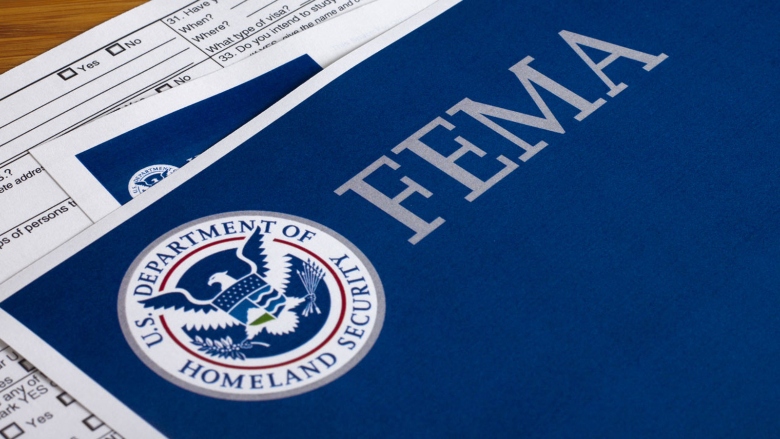A recent controversy involving the Federal Emergency Management Agency (FEMA) has ignited bipartisan outrage and led Republicans to demand an investigation into claims of political discrimination. Allegations emerged that a FEMA employee instructed relief teams to avoid helping residents whose homes displayed signs supporting Donald Trump, the Republican presidential nominee. The incident, which has drawn significant media coverage, led to the employee’s termination and heightened scrutiny over FEMA’s handling of political bias.
FEMA Administrator Deanne Criswell confirmed the allegations, stating on X (formerly Twitter) that an employee directed “her survivor assistance team to not go to homes with yard signs supporting President-elect Trump.” Criswell condemned the action as a “reprehensible” violation of FEMA’s core values, which mandate providing assistance to all individuals regardless of political affiliation.
“This action is entirely inconsistent with FEMA’s values of impartial aid and has no place in our agency,” Criswell said. She explained that the incident has been referred to the Office of Special Counsel for further investigation to determine if the employee’s actions violated federal regulations. However, Criswell did not specify the exact disaster associated with this incident, although reports indicate it may have occurred during recovery efforts in Florida following Hurricane Milton and shortly after Hurricane Helene.
The New York Post initially reported on the incident, sparking strong responses from Republican lawmakers and officials. Many Republicans voiced their concerns over the alleged political discrimination on social media, demanding a thorough inquiry and accountability for those involved.
Senator Susan Collins of Maine was one of the first to respond publicly, posting on X: “The Inspector General must immediately conduct a full investigation, and all those responsible for playing politics with vulnerable people’s lives and homes should be held accountable.” Collins’ call to action underscored the sentiment that using political bias as a filter for delivering disaster aid is unacceptable.
Other prominent Republicans followed suit. Representative Matt Gaetz labeled the situation “unconscionable discrimination” and argued that Congress has a responsibility to investigate the matter fully. “Public servants should prioritize the needs of Americans in distress, not their own political leanings,” Gaetz added.
Utah Senator Mike Lee echoed this sentiment, calling the behavior “abhorrent” and stating that “political discrimination by public servants tasked with helping Americans in distress should not be tolerated.” The statements from Republican leaders reflect an urgency to examine FEMA’s internal policies to ensure that relief efforts remain nonpartisan.
Florida Governor Ron DeSantis also weighed in, vowing to conduct a state-level investigation through the Florida Division of Emergency Management. “At my direction, the Division of Emergency Management is launching an investigation into the federal government’s targeted discrimination of Floridians who support Donald Trump,” he announced. DeSantis expressed optimism that the incoming administration in Washington would address the issue and hold accountable any “partisan bureaucrats” who might have enabled the behavior.
The Office of Special Counsel, FEMA, and Trump’s campaign were contacted for comment by journalists, although no responses were provided at the time of reporting. As the investigation gains traction, observers expect more responses from both FEMA officials and Trump’s team, who have thus far remained silent on the matter.
For FEMA, this incident highlights a serious reputational risk and raises questions about how the agency ensures impartiality in its work. FEMA’s reputation as an unbiased provider of emergency assistance could be jeopardized by incidents that suggest political favoritism or discrimination, which would erode public trust. FEMA’s mission, as outlined in its mandate, emphasizes a nonpartisan commitment to helping all Americans in times of disaster, making this controversy a potential flashpoint for FEMA leadership.
Criswell’s statement sought to reassure the public that FEMA takes these values seriously and that the incident was isolated and addressed promptly. However, Republican lawmakers argue that more extensive measures may be necessary to ensure political neutrality across federal agencies. The investigation they are calling for aims to address the potential of systemic issues within FEMA that might enable or overlook biased conduct.
In addition to the legislative scrutiny, Republicans argue that this incident speaks to a broader issue of political bias within federal agencies, which they claim has been exacerbated by what they call a “partisan culture” in Washington. Lawmakers have suggested that increased oversight and reforms may be required not only in FEMA but in other federal departments as well. This perspective aligns with Republican leaders’ calls for a government that prioritizes efficient, fair, and unbiased service to the public.
As FEMA’s leadership contends with the fallout from this incident, it faces mounting pressure to ensure that relief efforts remain free of political discrimination. The Republican calls for a broader investigation into FEMA’s operations reflect a commitment to understanding how and why such an event occurred, with the goal of preventing future instances of political bias in disaster response.
While Criswell has taken steps to address the issue, the question of whether additional safeguards are needed remains under consideration. The investigation may ultimately lead to new guidelines or oversight practices within FEMA to reinforce its nonpartisan mission. The incident also serves as a reminder of the importance of transparency and accountability within government agencies, particularly those tasked with critical services like disaster relief.
As the probe unfolds, public and political attention will likely focus on how FEMA and other federal agencies address claims of partisanship. With new leadership anticipated in Washington, many are hopeful that this incident will lead to constructive changes in FEMA’s policies, ensuring that aid distribution remains impartial and universally accessible.


